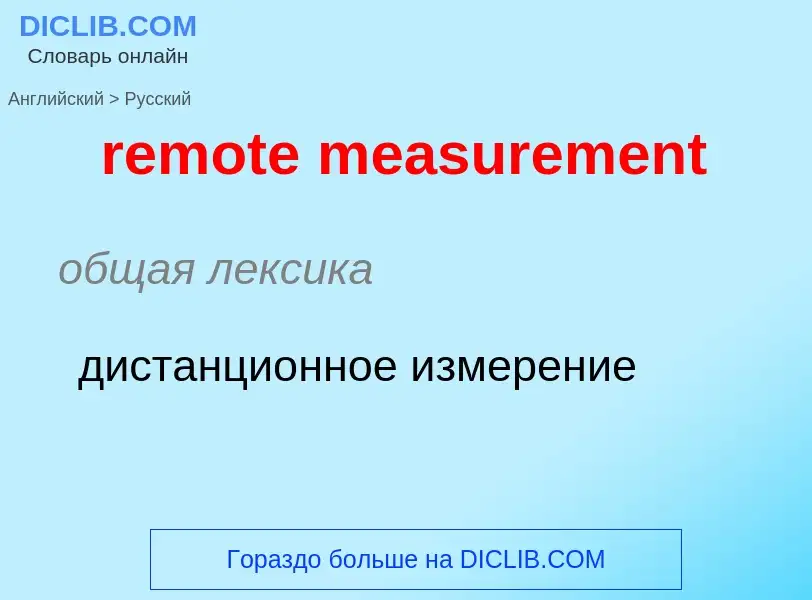Перевод и анализ слов искусственным интеллектом
На этой странице Вы можете получить подробный анализ слова или словосочетания, произведенный с помощью лучшей на сегодняшний день технологии искусственного интеллекта:
- как употребляется слово
- частота употребления
- используется оно чаще в устной или письменной речи
- варианты перевода слова
- примеры употребления (несколько фраз с переводом)
- этимология
remote measurement - перевод на русский
общая лексика
дистанционное измерение
Определение
Википедия
Remote viewing (RV) is the practice of seeking impressions about a distant or unseen subject, purportedly sensing with the mind. Typically a remote viewer is expected to give information about an object, event, person or location that is hidden from physical view and separated at some distance. Physicists Russell Targ and Harold Puthoff, parapsychology researchers at Stanford Research Institute (SRI), are generally credited with coining the term "remote viewing" to distinguish it from the closely related concept of clairvoyance. According to Targ, the term was first suggested by Ingo Swann in December 1971 during an experiment at the American Society for Psychical Research in New York City.
Remote viewing experiments have historically been criticized for lack of proper controls and repeatability. There is no scientific evidence that remote viewing exists, and the topic of remote viewing is generally regarded as pseudoscience.
The idea of remote viewing received renewed attention in the 1990s upon the declassification of documents related to the Stargate Project, a $20 million research program sponsored by the U.S. government that attempted to determine potential military applications of psychic phenomena. The program ran from 1975 to 1995, and ended after evaluators reached the conclusion that remote viewers consistently failed to produce any actionable intelligence information.




